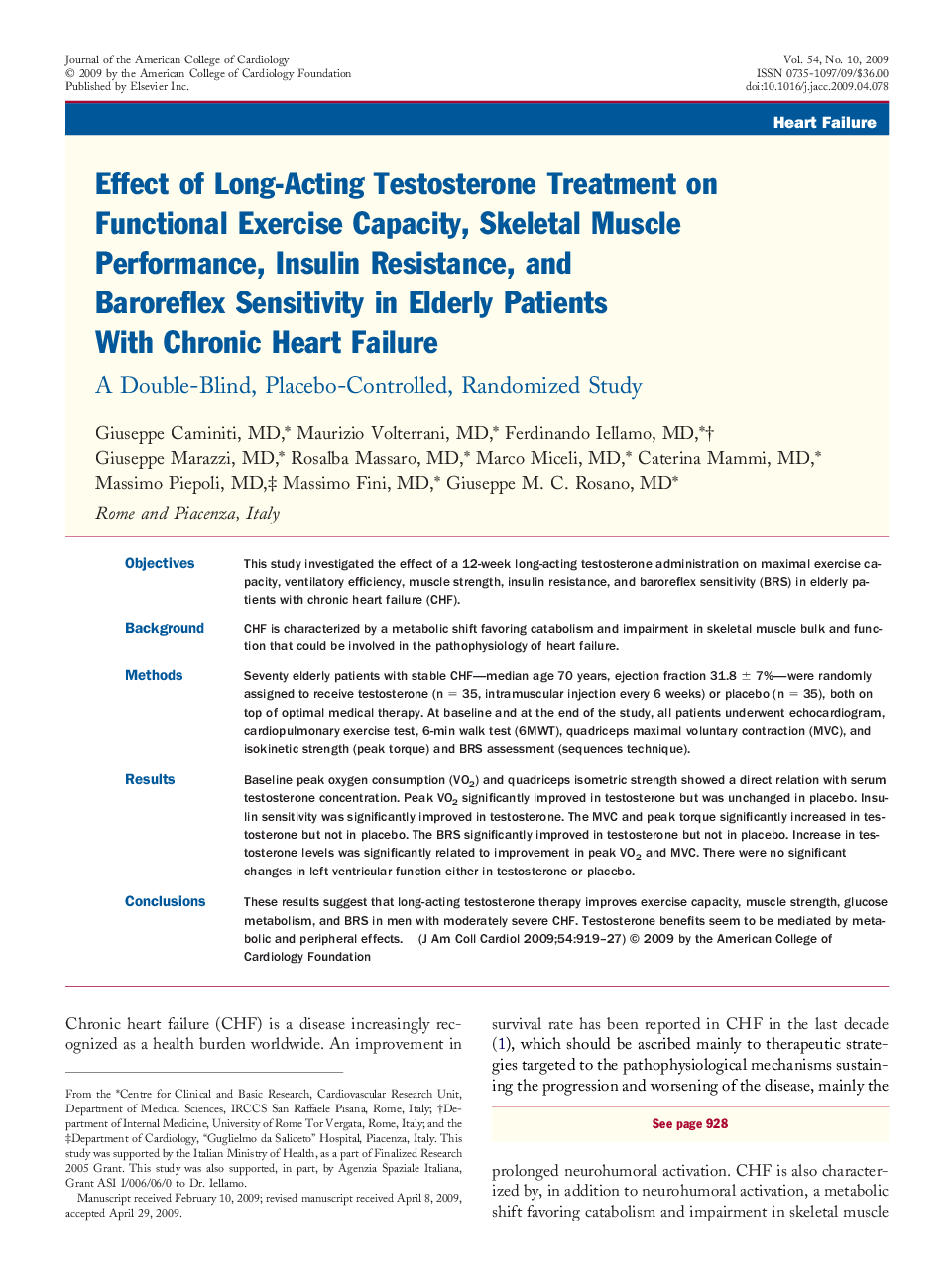| کد مقاله | کد نشریه | سال انتشار | مقاله انگلیسی | نسخه تمام متن |
|---|---|---|---|---|
| 2950576 | 1577353 | 2009 | 9 صفحه PDF | دانلود رایگان |

ObjectivesThis study investigated the effect of a 12-week long-acting testosterone administration on maximal exercise capacity, ventilatory efficiency, muscle strength, insulin resistance, and baroreflex sensitivity (BRS) in elderly patients with chronic heart failure (CHF).BackgroundCHF is characterized by a metabolic shift favoring catabolism and impairment in skeletal muscle bulk and function that could be involved in the pathophysiology of heart failure.MethodsSeventy elderly patients with stable CHF—median age 70 years, ejection fraction 31.8 ± 7%—were randomly assigned to receive testosterone (n = 35, intramuscular injection every 6 weeks) or placebo (n = 35), both on top of optimal medical therapy. At baseline and at the end of the study, all patients underwent echocardiogram, cardiopulmonary exercise test, 6-min walk test (6MWT), quadriceps maximal voluntary contraction (MVC), and isokinetic strength (peak torque) and BRS assessment (sequences technique).ResultsBaseline peak oxygen consumption (VO2) and quadriceps isometric strength showed a direct relation with serum testosterone concentration. Peak VO2significantly improved in testosterone but was unchanged in placebo. Insulin sensitivity was significantly improved in testosterone. The MVC and peak torque significantly increased in testosterone but not in placebo. The BRS significantly improved in testosterone but not in placebo. Increase in testosterone levels was significantly related to improvement in peak VO2and MVC. There were no significant changes in left ventricular function either in testosterone or placebo.ConclusionsThese results suggest that long-acting testosterone therapy improves exercise capacity, muscle strength, glucose metabolism, and BRS in men with moderately severe CHF. Testosterone benefits seem to be mediated by metabolic and peripheral effects.
Journal: Journal of the American College of Cardiology - Volume 54, Issue 10, 1 September 2009, Pages 919–927